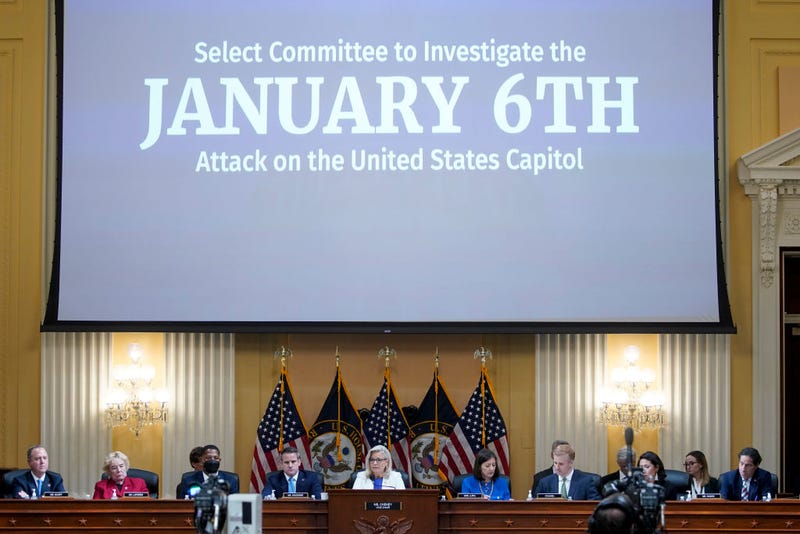
“We will reconvene in September to continue laying out our findings to the American people,” said Rep. Bennie Thompson (D-Miss.) in a statement Thursday regarding the eighth select committee hearing on the Jan. 6, 2021 Capitol riot.
“As we’ve made clear throughout these hearings, our investigation goes forward,” he explained. “We continue to receive new information every day. We continue to hear from witnesses.”
Thompson also said that the investigation thus far has shown that “there can be no doubt that there was a coordinated, multi-step effort to overturn an election overseen and directed by [former President] Donald Trump.”
So, what impact might this extension have on the upcoming midterm elections?
Who is paying attention?
According to Nielsen Company statistics cited by ABC News, around 20 million people watched the first prime-time hearing on June 9, which aired on most major broadcast channels. This week, CNN Business reported that the hearings have been building momentum and audience interest.
“Generally, reaching that big an audience in mid-July would be a long shot, as it is the least-watched television month of the year,” said ABC News.
Still, NPR reported this week, before Thursday’s hearing, that the political influence of the hearings appears to be “limited.”
FOX News declined to air the hearings at all.
“It’s really just a cheap, selectively edited political ad,” said FOX host Sean Hannity.
However, NPR explained that Republicans are taking a less defensive stance regarding these hearings than they did during Trump’s impeachments.
“Republican leaders boycotted the hearings, so unlike Trump’s televised impeachment trials, viewers haven’t seen a vigorous defense of his actions from the dais,” said the outlet.
Doug Heye, a former communications director for the Republican National Committee, said Republicans have no real reason to defend Trump since he is no longer president.
“The RNC and Republicans on Capitol Hill know they are poised for a great election year and what’s the biggest thing that could be a hurdle to that? Donald Trump, who is not their principal anymore,” Heye said. “So it’s not their job to defend him and sometimes you just don't want to defend the indefensible.”
What is the impact?
“January 6 was an unprecedented assault on modern American democracy, and, as we are learning from the hearings, shocked even those who were close to President Trump and accustomed to his lies,” said Didi Kuo, a political scholar from Stanford University.
Republicans Liz Cheney of Wyoming and Adam Kinzinger of Illinois have been at the forefront of the investigation, an example of how the deadly riot has created fault lines in the GOP. Kuo said, though they have been criticized by fellow Republicans, that they play a critical role in the party’s future.
“In order to stabilize democracy, Republicans will have to recommit to it,” she said.
“President Trump has divided the Republican Party by mobilizing a far-right faction that believes the Big Lie and is willing to legislate and govern in ways that undermine American democracy,” according to, Kuo who calls Trump’s unfounded claims the election fraud cost him the 2020 presidential election the Big Lie.”
Kuo said that election deniers who support Trump’s claims are running for Congress and state offices, and that Republicans are passing legislation that criminalizes routine election procedures. The New York Times and Washington Post “have been tracking the types of candidates who are winning and losing primaries,” and she said that both these results and the investigation will test whether the Republican Party “can successfully disavow its extremist wing.”
Kuo compared the Capitol riot and current hearings to the Watergate scandal of Republican President Richard Nixon in the 1970s, which she said showed “that American citizens can indeed turn against corruption.”
Like Heye, she said it may be easier for Republican leaders to distance themselves from Trump as the investigation reveals more evidence. This could change the “electoral calculus of the party,” which has viewed the former president as a “kingmaker” for other candidates.
What is the prognosis?
As we inch closer to the midterms, Trump-backed Pennsylvania Senate candidate and celebrity doctor Mehmet Oz has complained about Democrats outpacing Republicans for campaign fundraising in the wake of unpopular U.S. Supreme Court decisions and a rash of mass shootings.
With voters potentially motivated by these issues, as well as the Jan. 6 hearings, Democrats hope to buck the historical trend of a newly elected president’s party doing poorly in the midterms. Indeed, most political analysts predict that Republicans could take the House of Representatives and the Senate in November.
Low approval ratings for President Joe Biden and high inflation do not paint a rosy picture for Democrats this fall. Even house Democrats believe that inflation is a bigger concern for Americans than the probe.
“If the Republicans do well in 2022, it won’t all be tied to the Big Lie,” but rather issues such as the economy, said Kuo. “However, the types of candidates that win might preview the 2024 presidential race, which will likely pit Trumpist Republican candidates against establishment conservatives.”
Going forward, Steven Groves, who worked on Trump’s impeachment defense, said the Jan. 6 hearings could put a dent in a 2024 presidential campaign Trump has hinted at, according to NPR.


